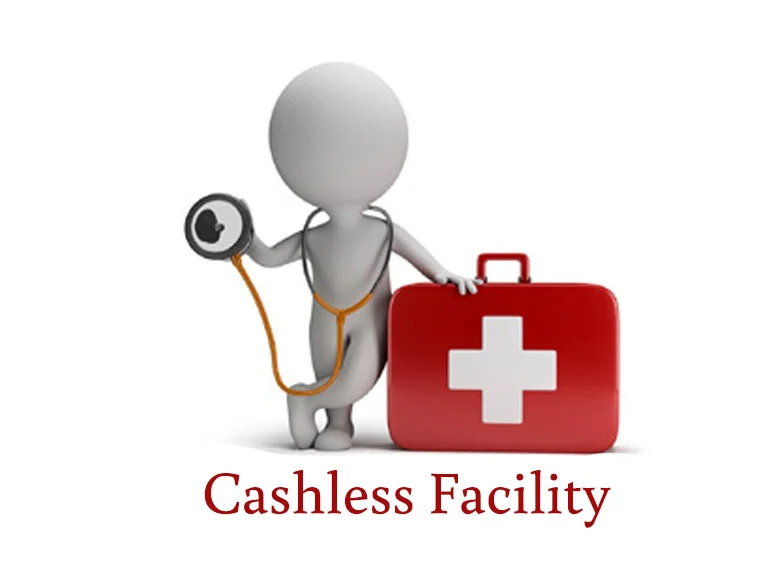How to Evaluate Your Health Insurance Policy: A Complete Guide
Evaluating your health insurance policy is an essential step to ensure you have the right coverage to meet your healthcare needs. With rising medical costs and unforeseen health issues, having a strong health insurance plan can offer peace of mind and financial security. However, holding a policy is not enough. Understanding and assessing its features periodically is crucial in maximising its benefits. In this guide, we’ll walk you through the steps to evaluate your health insurance policy effectively, including the importance of opting for cashless health insurance for added convenience. So, let’s begin.
Why Evaluate Your Health Insurance Policy?
Health insurance needs to evolve with time. It is influenced by factors such as age, lifestyle changes, or new healthcare requirements. Evaluating your policy helps you:
● Ensure adequate coverage for your current health conditions.
● Identify any gaps in coverage for critical illnesses or high-cost treatments.
● Optimise the benefits of your plan without overpaying.
● Keep up with advancements in healthcare offerings, such as cashless health insurance services.
1. Analyse the Coverage Details
The first step in evaluating your health insurance policy is understanding what it covers. Check for:
● Hospitalisation Coverage: Does your policy cover pre and post-hospitalisation expenses? Ensure comprehensive protection for all stages of treatment.
● Critical Illness Coverage: Verify if severe health conditions like cancer, heart attacks, or strokes are included. If not, consider adding a critical illness rider.
● Daycare Procedures: Ensure your policy covers modern treatments, including daycare procedures that don’t require overnight hospitalisation.
2. Consider the Policy’s Sum Insured
Your sum insured should align with your healthcare needs and the rising costs of medical treatments. Evaluate whether your policy provides sufficient financial support during emergencies. For families, a family floater health insurance policy might be a better option, as it offers a shared sum insured across all members.
If you find the sum insured inadequate, consider top-up plans or policies like Bajaj Allianz General Insurance Company’s Extra Care Policy, which provides additional coverage beyond your existing plan’s limit.
3. Check the Network Hospitals for Cashless Health Insurance
One of the most significant benefits of these policies is the cashless health insurance feature. This allows you to receive treatment without worrying about immediate payments at network hospitals. When evaluating your policy, check:
● The size of the insurer’s hospital network.
● Availability of reputed hospitals in your vicinity.
● Ease of availing cashless claims in emergencies.
Having access to a wide network of hospitals ensures quick and hassle-free treatment without financial stress.
4. Assess the Claim Settlement Process
A smooth claim settlement process is vital for peace of mind during medical emergencies. When evaluating your policy:
● Research the insurer’s claim settlement ratio.
● Understand the timelines for reimbursement and cashless approvals.
● Check for any hidden conditions or lengthy documentation requirements.
Policies that offer quick, transparent claims ensure you can focus on recovery rather than dealing with bureaucratic challenges.
5. Evaluate Add-On Features and Riders
Health insurance plans from reputed insurers like Bajaj Allianz General Insurance Company often come with optional riders that enhance coverage. Assess whether your policy includes or allows add-ons like:
● Critical Illness Rider: Covers life-threatening diseases with lump-sum payments upon diagnosis.
● Personal Accident Rider: Provides coverage for accidental injuries or disability.
● Hospital Cash Policy: Offers a fixed daily allowance during hospitalisation for non-medical expenses like food or travel.
Customising your plan with relevant riders ensures better financial security for a variety of situations.
6. Review Premium Costs and Affordability
A good health insurance policy strikes a balance between coverage and affordability. Evaluate:
● Whether your premium is reasonable for the benefits offered
● Any discounts available for longer policy terms or family coverage
● Tax benefits under Section 80D of the Income Tax Act, 1961
If your policy feels too expensive, compare it with similar options to ensure you’re not overpaying for limited benefits.
7. Include Dependents for Holistic Coverage
Family health insurance plans provide the flexibility to include dependents like spouses, children, or even parents. Evaluate if your policy allows adding dependents and whether it offers adequate coverage for all family members. A family floater plan can simplify management and reduce overall costs.
8. Keep Track of Renewal Benefits
Timely renewal of your policy ensures uninterrupted coverage. Review renewal features such as:
● No-Claim Bonus (NCB): Earned for claim-free years, increasing your sum insured without additional premiums.
● Lifelong Renewability: Ensure your policy remains valid regardless of age or health conditions.
Conclusion
Evaluating your health insurance policy periodically is key to staying prepared for medical emergencies and ensuring your policy matches your current needs. Focus on coverage details, affordability, cashless health insurance options, and add-on benefits while assessing your plan. A well-evaluated policy not only provides peace of mind but also ensures you and your loved ones receive the best possible care when it matters most.
Taking proactive steps to assess and optimise your health insurance ensures comprehensive coverage and financial security, enabling you to tackle health challenges confidently.
Disclaimer: The content on this page is generic and shared only for informational and explanatory purposes. It is based on several secondary sources on the internet and is subject to changes. Please consult an expert before making any related decisions.
Insurance is the subject matter of solicitation. For more details on benefits, exclusions, limitations, terms, and conditions, please read the sales brochure/policy wording carefully before concluding a sale.
Claims are subject to terms and conditions set forth under the health insurance policy.
The information presented is not meant to be a substitute for medical advice. Any suggestions mentioned should be considered for general use only. For expert guidance on any health ailment or medical issue or any treatment/procedure, please consult a certified medical professional.
**Tax benefits are subject to change in prevalent tax laws.







